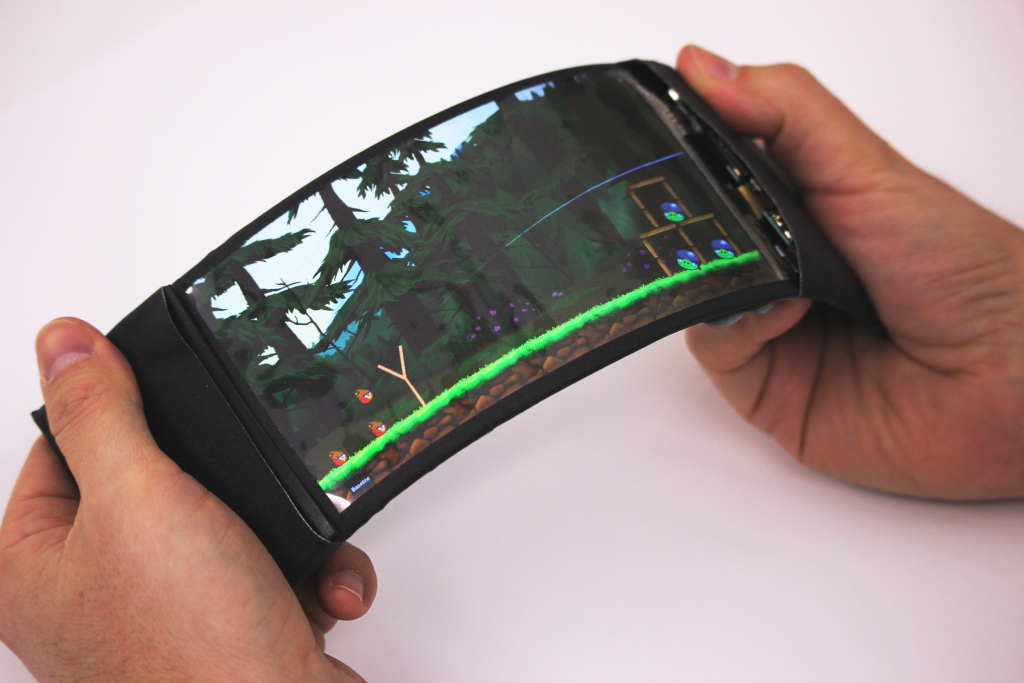Developed by Queen’s University’s Human Media Lab, ReFlex is a flexible smartphone that not only bends, but uses its bending technology as a central feature. As you can see in the video below, it not only comes with a standard 720p LG Display through its Flexible OLED screen and an Android 4.4 KitKat OS, but bend sensors for input and a haptic feedback actuator that allows users to interact with their device in new and interesting ways.
For a closer look and better idea of what the ReFlex offers, go no further than the director of Human Media Lab himself, Roel Vertegaal. The lab means to bring back a more natural and physical feel to our interaction with our gadgets, like when we read books or play games. “When this smartphone is bent down on the right, pages flip through the fingers from right to left, just like they would in a book,” he says. “More extreme bends speed up the page flips. Users can feel the sensation of the page moving through their fingertips via a detailed vibration of the phone. This allows eyes-free navigation, making it easier for users to keep track of where they are in a document.
“This allows for the most accurate physical simulation of interacting with virtual data possible on a smartphone today. When a user plays the ‘Angry Birds’ game with ReFlex, they bend the screen to stretch the sling shot. As the rubber band expands, users experience vibrations that simulate those of a real stretching rubber band. When released, the band snaps, sending a jolt through the phone and sending the bird flying across the screen.”
Shown off recently at the 10th anniversary Conference on Tangible Embedded and Embodied Interaction (TEI) conference in Eindhoven, The Netherlands, Dr. Vertegaal and HML hope to prove that such a physically interactive phone has a place in the market. But ultimately, that choice comes to the consumers. Would you buy such a phone? Would it appeal to you more than the touch and gesture-based interaction we currently have? Let us know in the comments below, and for more information on ReFlex, check out the Reflex website.

